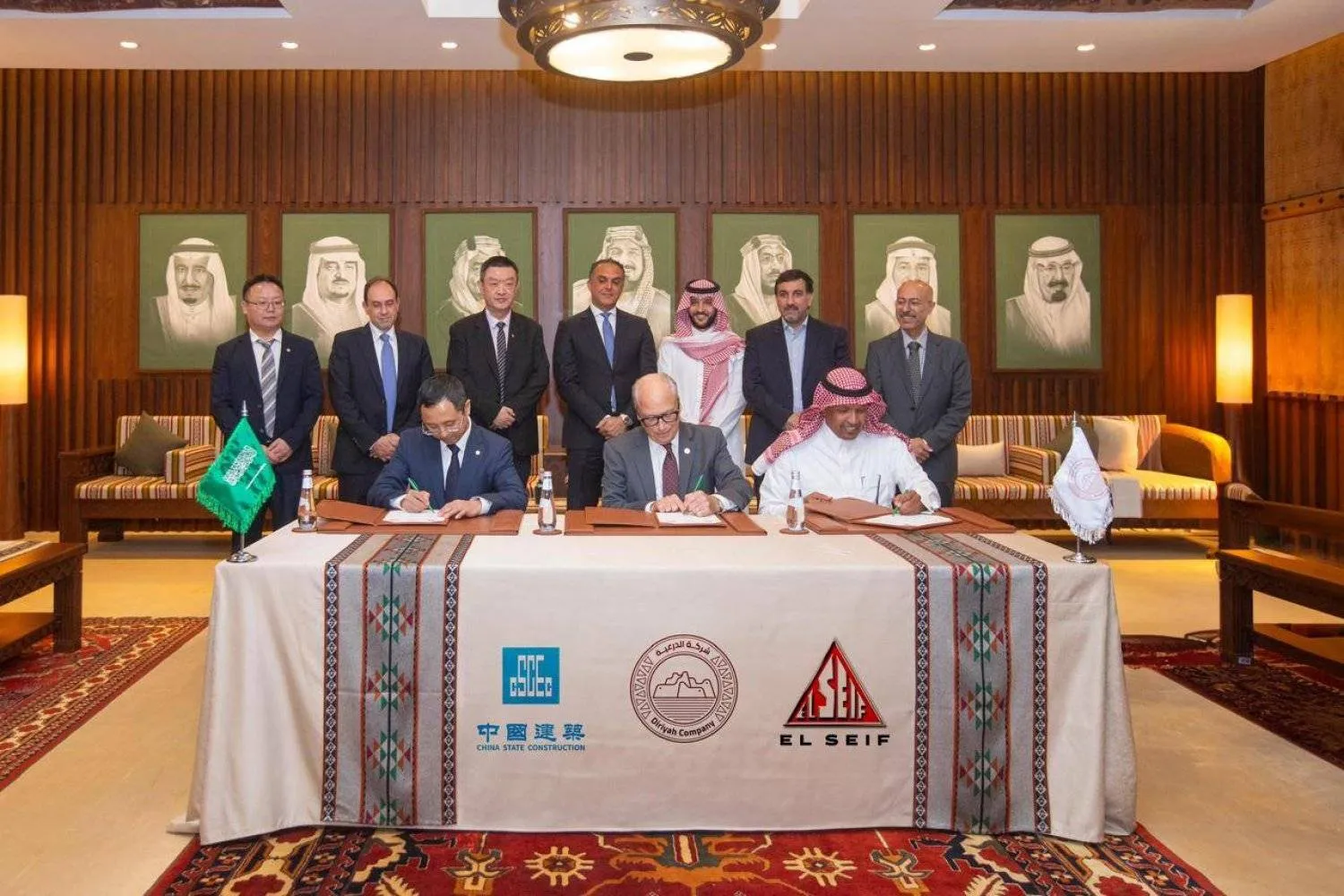The Diriyah Company, which is affiliated with the Saudi Public Investment Fund (PIF), announced on Wednesday the signing of the largest construction contracts awarded in the history of the region, with a value exceeding SAR7.8 billion ($2 billion).
The joint venture contractors include Saudi Arabia-based El Seif Engineering Contracting (ESEC) and China State Construction Engineering Corporation (CSCEC), the company said in a statement.
It added that the project includes building a mixed-use district with advanced educational institutions, cultural sites, modern offices, and a luxury hotel, within the framework of the Diriyah Development, which represents the Kingdom’s most important historical and cultural destination, and one of the most prominent projects of Vision 2030.
Jerry Inzerillo, Diriyah Company Group CEO, said: “We are thrilled to announce the award of this major contract to build the exciting mixed-use district in the north of Diriyah. This represents a major step in our accelerating development strategy and commitment to making Diriyah a place for the world to be able to learn, absorb culture, and experience a vibrant and welcoming visitor destination.”
He continued: “The agreement with CSCEC is a further example of the ever-closer economic ties and constructive business partnerships that are being built between Saudi Arabia and China.”
For his part, Ahmed Al Bassam, CEO of ESEC, said: “We are enormously proud to continue our strategic partnership with the Diriyah Company and to be entrusted with a project of such importance in developing some of the highest profile assets within the Diriyah development area, and indeed across the Kingdom.”
In turn, Chuanhai Wei, Vice President of CSCEC Middle East General Manager at CSCEC KSA Branch, stated: “This contract marks another landmark opportunity for CSCEC to work once again with our strategic partners at El Seif Engineering Contracting Company and the Diriyah Company in building an extraordinary new city on the outskirts of Riyadh. We are delighted to be working on such a large-scale and ambitious project once more.”
Saudi Arabia’s Diriyah Company Signs $2 Billion Development Contract

The joint venture contractors include Saudi Arabia-based El Seif Engineering Contracting (ESEC) and China State Construction Engineering Corporation (CSCEC). (Photo: Asharq Al-Awsat)

Saudi Arabia’s Diriyah Company Signs $2 Billion Development Contract

The joint venture contractors include Saudi Arabia-based El Seif Engineering Contracting (ESEC) and China State Construction Engineering Corporation (CSCEC). (Photo: Asharq Al-Awsat)
لم تشترك بعد
انشئ حساباً خاصاً بك لتحصل على أخبار مخصصة لك ولتتمتع بخاصية حفظ المقالات وتتلقى نشراتنا البريدية المتنوعة







